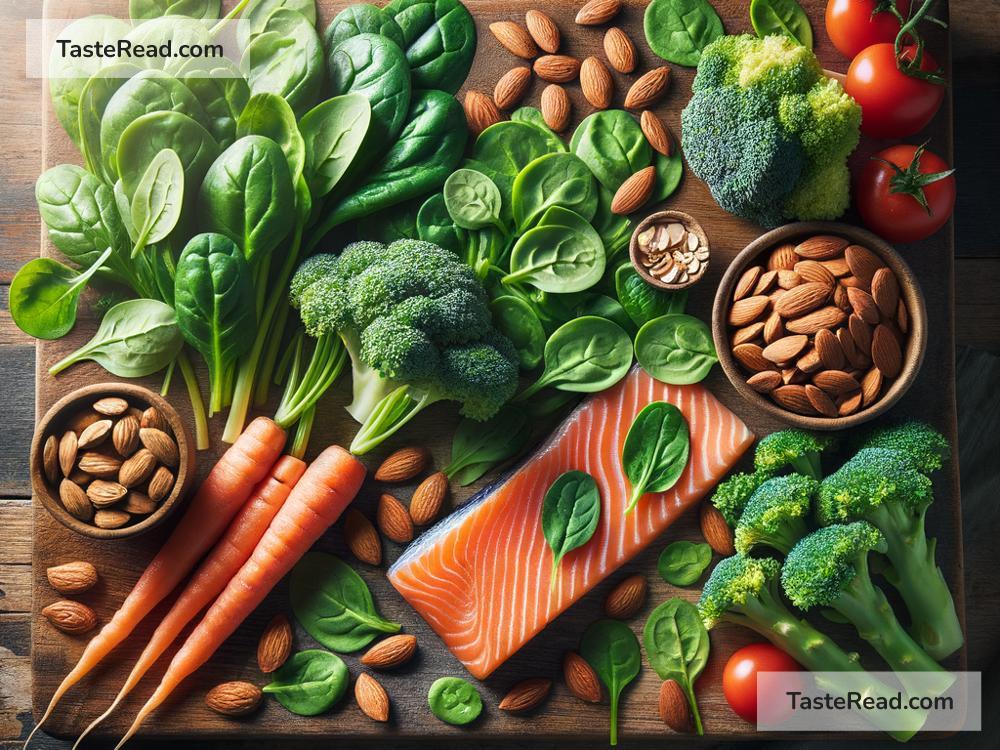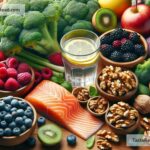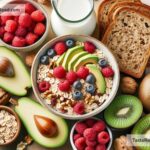Foods That Reduce the Risk of Colorectal Polyps
When it comes to staying healthy, what we eat plays a big role, especially for our digestive system. Colorectal polyps are small growths in the lining of the colon or rectum. While most polyps are harmless, some can turn into colorectal cancer if left untreated. The good news is that certain foods can help reduce the risk of developing these polyps. In this blog, we’ll talk about the best foods for keeping your colon healthy and why they matter.
What Are Colorectal Polyps?
Before diving into the best foods, let’s understand what colorectal polyps are. Polyps are small, clump-like growths of cells that form in the lining of the colon or rectum. Some people develop polyps without any symptoms, while others may experience issues like bleeding, changes in bowel habits, or abdominal pain. The connection between polyps and colorectal cancer makes it important to stay proactive about prevention. This includes healthy eating, regular screenings, and quitting bad habits, like smoking and excessive alcohol use.
Now, let’s look at the foods that can help reduce your risk of colorectal polyps.
1. Fiber-Rich Foods
Fiber is one of the best nutrients for colon health. It helps move waste through your digestive system, reducing the chance of toxins irritating the colon lining. A high-fiber diet can also regulate bowel movements and prevent constipation, which minimizes pressure on the colon.
Some fiber-rich foods to include in your diet are:
– Whole grains like oats, brown rice, and quinoa
– Fruits such as apples, oranges, berries, and pears
– Vegetables like broccoli, carrots, spinach, and kale
– Legumes such as beans, lentils, and chickpeas
Aim for at least 25–30 grams of fiber a day to reap the benefits.
2. Cruciferous Vegetables
Cruciferous vegetables like broccoli, cauliflower, Brussels sprouts, and cabbage are packed with compounds called glucosinolates, which fight inflammation and help detoxify the body. These vegetables also contain sulforaphane, a substance that may protect against the development of polyps and colorectal cancer by interfering with the growth of abnormal cells.
To get the most benefits, try eating cruciferous vegetables raw or lightly steamed, as cooking them for too long can reduce their nutrient content.
3. Foods Rich in Calcium and Vitamin D
Calcium and vitamin D work together to protect against the growth of colorectal polyps. Calcium helps strengthen the cells in the colon lining, while vitamin D aids in regulating cell growth. Studies suggest that people with higher levels of calcium and vitamin D have a lower risk of developing polyps and colorectal cancer.
Foods that are rich in calcium and vitamin D include:
– Dairy products like milk, yogurt, and cheese
– Fortified plant-based milk (e.g., almond, soy, or oat milk)
– Leafy greens like collard greens and kale
– Fatty fish such as salmon, mackerel, and sardines
– Egg yolks
If you struggle to meet your daily needs, consult a doctor about supplements.
4. Antioxidant-Rich Foods
Antioxidants are compounds that protect cells from damage caused by free radicals. Free radicals are unstable molecules that can lead to inflammation and trigger abnormal cell growth, including polyps. Foods high in antioxidants are especially helpful for reducing overall cancer risk, including colorectal cancer.
Some of the best antioxidant-rich foods include:
– Berries like blueberries, strawberries, and raspberries
– Dark chocolate (in moderation)
– Green tea
– Nuts and seeds like almonds, walnuts, and sunflower seeds
– Tomatoes (rich in lycopene)
Adding these foods to your meals is a simple and delicious way to boost your colon health.
5. Omega-3 Fatty Acids
Omega-3 fatty acids are healthy fats that can reduce inflammation in the body. Chronic inflammation is linked to the development of polyps and cancer, so eating omega-3-rich foods is a great way to reduce your risk.
Sources of omega-3 fatty acids include:
– Fatty fish like salmon, tuna, and mackerel
– Flaxseeds and flaxseed oil
– Chia seeds
– Walnuts
Consider swapping out red meats, which can increase polyp risk, for these healthier protein options.
6. Turmeric and Ginger
Spices like turmeric and ginger contain anti-inflammatory compounds that may reduce the risk of colorectal polyps. Turmeric’s active ingredient, curcumin, has been shown to slow the growth of abnormal cells in the colon. Ginger also helps improve digestion and fight inflammation, making it a great addition to your diet.
Try adding turmeric to soups, stews, or rice dishes, and use ginger in teas or stir-fries.
7. Foods High in Folate
Folate, a type of B vitamin, plays a role in cell repair and growth. Studies suggest that folate-rich foods may lower the risk of colorectal polyps and cancer.
Good sources of folate include:
– Leafy greens like spinach and romaine lettuce
– Asparagus
– Avocados
– Citrus fruits like oranges and grapefruit
– Beans and peas
Make leafy greens and legumes a regular part of your meals to keep your folate levels healthy.
A Balanced Diet Matters
Eating a balanced diet with a variety of nutrient-rich foods is key to reducing your risk of colorectal polyps and promoting overall colon health. In addition to healthy eating, don’t forget to stay active, maintain a healthy weight, and limit processed foods and red meats, as these can increase your risk.
If you have a family history of colorectal polyps or colorectal cancer, talk to your doctor about additional prevention strategies like regular screenings.
By incorporating these foods into your diet, you’re taking an important step toward a healthy colon—and a healthier you!


